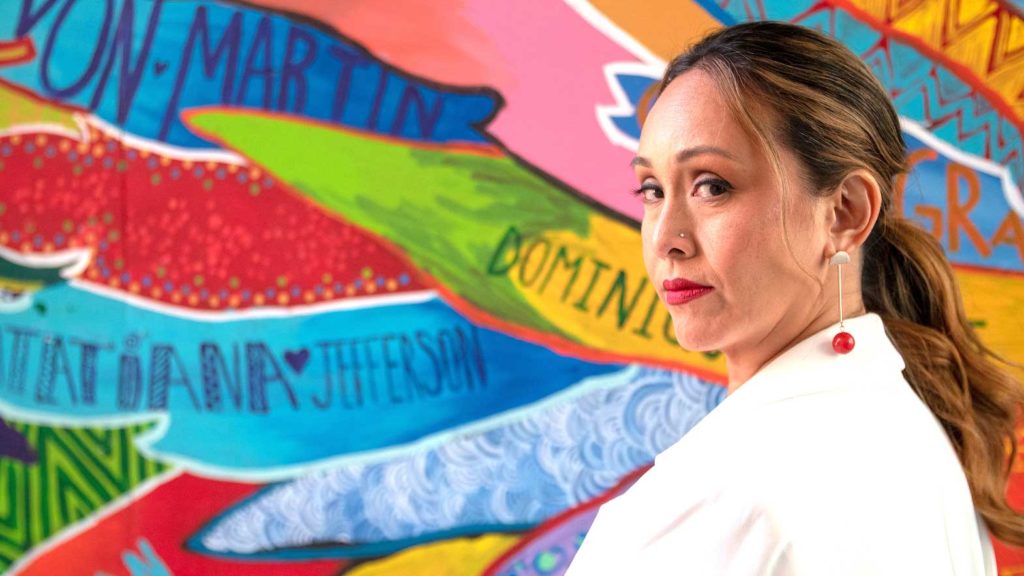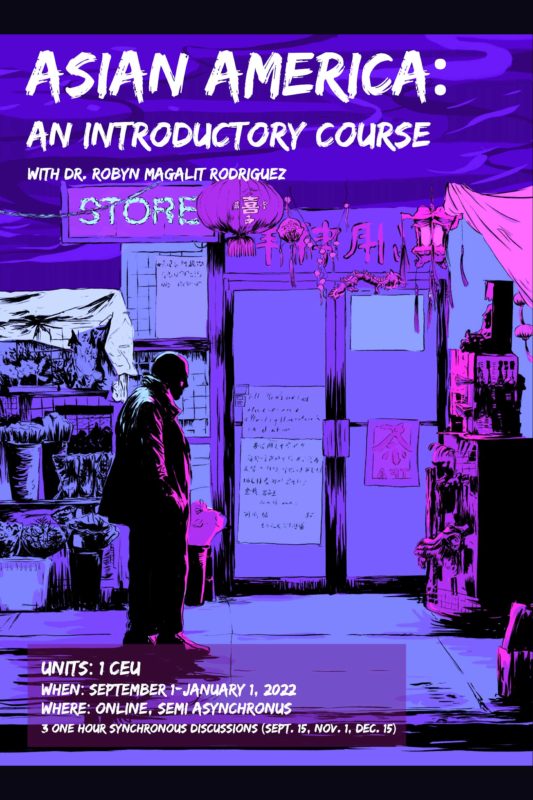Fil-Am prof creates online Asian American studies course for community

Professor Robyn Rodrigues of the Bulosan Center is offering a new course to the community. CONTRIBUTED
A professor at UC Davis is launching an introductory Asian American online course to make ethnic studies more accessible to the community.
Robyn Rodriguez, professor of Asian American Studies at the university and founding director of its Bulosan Center for Filipino Studies, the only center for Filipino studies in the University of California system, created a self-paced, 10-hour course about the Asian American experience. It will go live on Friday with open enrollment ongoing.
Rodriguez said she was prompted to create the course after having had to deal with constraints within the university system that have made it difficult to expand her work the at the Bulosan Center. She said the course is part of a bigger initiative to offer not just Asian or Filipino American studies courses, but also to bypass the university and offer it to the community as part of a social enterprise.
“The work that people do that try to throw attention on marginalized communities of color is barely surviving in higher education,” she said. “So I decided, why keep all of this curriculum and knowledge in the university? Why not offer it directly to the community?”
Rodriguez designed the course with K-12 teachers in mind — specifically BIPOC educators — to provide them with a cursory understanding of the Asian American experience that she hopes will be personally enriching and effective in school settings. But the course is also open to adults interested in learning about the Asian American experience.

The course, “Asian America: An Introduction,” will cover five main areas: American history of immigration and settlement. CONTRIBUTED
The course, “Asian America: An Introduction,” will cover five main areas: American history of immigration and settlement; Asian American identities; Asian American families and intimate relationships; Asian Americans’ educational and economic achievement; and interethnic/interracial relations — including the country’s long history of anti-Asian hate.
Individuals interested in the course can register online for $159, all of which will go towards covering the cost of running the course, Rodriguez said. Costs involved include the platform, a staffer to help manage enrollment and communicate with students, and interns to help with curricular development. Rodriguez said she will not be taking a salary from this course for the time being.
Any additional revenue from registrations will be donated to community organizations, including the Sacramento API Regional Network, the Bulosan Center, and a non-profit Rodriguez launched in honor of her late son, Amado Khaya Canham Rodriguez, she said.
Rodriguez said she’s planning on an early retirement from UC Davis in 2023. During her tenure at the university, in addition to helping establish the Bulosan Center, she became the first Filipina American to serve as the university’s Asian American Studies department chair in UC Davis’ 50-year history.
She has been published in multiple journals, and fought for funding for research on Filipino Americans. She said it has been challenging to push for the space to teach what she believes is important.
After retiring, Rodriguez said she will focus on the course and also hopes to release additional courses in the summer, to continue growing course offerings, and at some point create a full slate of courses on Filipino American studies.
“So many Filipino Americans don’t get that opportunity and didn’t grow up with the opportunity for this learning, or may have been in families who chose assimilation as a pathway to survival,” she said. “We see rising anti-Asian hate and we worry for our children and we want to be able to equip them with some kind of critical understanding of who they are, where they come from.”
Rodriguez said she has invested much of her own time and resources conducting community lectures about Filipino American history for free while she was working three jobs. And she has realized that doing that is where her heart lies.
“I just want to do that for our community full time,” she said. “I’m tired of these fights in academia. I’m going to pass on the torch to the others, and now I just want to grow independent, autonomous institutions that serve us.”

